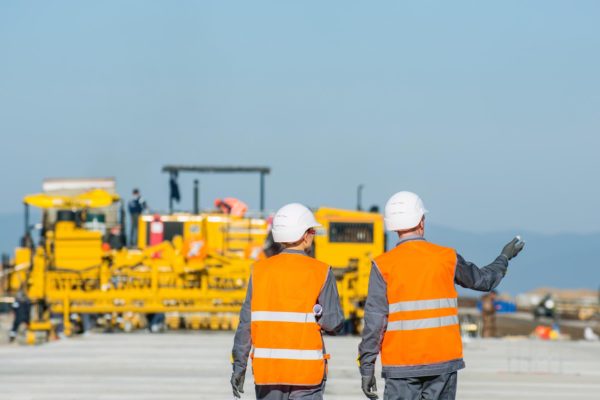The Interdisciplinary Approaches in the Geotechnical Sector: Linking the Void Between Engineering, Geology, and Environmental Scientific Research for Ideal Job End Results
The combination of engineering, geology, and ecological science within the geotechnical market is not just helpful; it is essential for attaining optimal task end results. This interdisciplinary partnership promotes a detailed understanding of complicated site problems, allowing for innovative options to arise. By checking out crucial duties and successful case research studies, we can reveal the vibrant interaction that drives job success. Nonetheless, difficulties remain in effectively taking care of these multidisciplinary initiatives, raising questions regarding prospective advancements and future fads. What approaches might arise to promote this vital cooperation and enhance the efficiency of geotechnical practices?
Value of Interdisciplinary Collaboration
The relevance of interdisciplinary cooperation in the geotechnical market can not be overstated. Reliable geotechnical projects need the assimilation of diverse experience from numerous fields, consisting of design, geology, and ecological scientific research. This collaboration ensures that all aspects of a job are considered, resulting in detailed solutions that address complex difficulties.
Interdisciplinary collaboration promotes development by making it possible for experts to share understandings and techniques that may not appear when operating in isolation (consulting engineer). By leveraging the staminas of numerous self-controls, teams can recognize possible risks, optimize design procedures, and improve the sustainability of geotechnical jobs. Such collaboration promotes a holistic understanding of site-specific conditions, which is vital for exact assessment and decision-making.
The intricacy of geotechnical tasks necessitates a collaborated method to analytical. Eventually, interdisciplinary cooperation is crucial for advancing ideal methods and attaining quality in the geotechnical industry.
Trick Duties of Each Discipline
Collaboration amongst numerous disciplines is not simply beneficial; it is vital for the effective implementation of geotechnical tasks. Each self-control-- design, geology, and environmental scientific research-- plays a distinctive yet interconnected duty that adds to predict efficacy and sustainability.
Geotechnical engineers are largely in charge of making foundations and ensuring structural stability. They analyze dirt and rock homes to examine load-bearing capacities, offering essential information for secure building techniques. Their competence enables the solution of ingenious services to complex difficulties.

Ecological researchers examine the potential influences of building and construction on ecological communities and water resources. They conduct environmental evaluations and develop mitigation methods to minimize negative effects. By incorporating ecological factors to consider, they guarantee conformity with guidelines and promote sustainability throughout the task lifecycle.
Study of Successful Assimilation
Effective integration of geotechnical disciplines can be exemplified via numerous study that highlight the efficiency of team effort in resolving intricate design obstacles. One noteworthy instance is the building of the look at this now Hong Kong-- Zhuhai-- Macau Bridge, where a joint technique including geotechnical engineering, geology, and environmental scientific research was critical. Rock hounds and engineers worked in unison to examine the seabed problems and optimize the foundation design, guaranteeing stability and decreasing ecological influence.
An additional impactful case is the renovation of slope stability in the San Francisco Bay Location, where an interdisciplinary group combined geotechnical analysis with ecological analyses. By integrating geological surveys and hydrological studies, the team efficiently identified potential landslide dangers and implemented reliable mitigation measures, improving safety and security and sustainability.
In addition, the redevelopment of Brownfield websites frequently needs a multidisciplinary method. In one case in Chicago, partnership amongst geotechnical engineers, ecological researchers, and city organizers led to the effective remediation of infected dirt, permitting for the safe makeover of the site into a community park. These you could check here study highlight that interdisciplinary cooperation not only addresses technical challenges yet likewise fosters ingenious services that profit both projects and areas.
Obstacles in Multidisciplinary Projects

Moreover, working with schedules and workflows amongst various groups can be bothersome, especially when each self-control has unique task turning points and deliverables. This misalignment can cause hold-ups and enhanced costs. The difficulty of resource appropriation likewise looms large; making certain that specific knowledge is available at vital junctures calls for mindful planning and insight.
Lastly, governing compliance presents one more significant difficulty. Each self-control may face different governing frameworks, and lining up these needs to satisfy task objectives can be intricate and taxing. Dealing with these challenges necessitates solid management and efficient communication approaches to foster cooperation and make sure that multidisciplinary teams function cohesively towards shared objectives.
Future Trends in Geotechnical Practices
As the geotechnical industry evolves, emerging trends are Visit Website reshaping methods to address the challenges faced in multidisciplinary projects - consulting engineer. One considerable pattern is the raised integration of advanced innovations, such as man-made knowledge and artificial intelligence, into geotechnical evaluation and layout. These modern technologies boost anticipating modeling and danger assessment, enabling designers to make even more enlightened decisions throughout the job lifecycle

Furthermore, the adoption of digital doubles and real-time surveillance systems is coming to be a lot more widespread. These tools facilitate ongoing assessment of dirt conditions and structural performance, allowing for prompt interventions when issues emerge.
Conclusion
In conclusion, the combination of design, geology, and ecological science is vital for accomplishing ideal results in the geotechnical sector. Successful situation researches show the benefits of this technique, while acknowledging the difficulties faced in multidisciplinary projects.
The combination of engineering, geology, and ecological scientific research within the geotechnical market is not just beneficial; it is vital for attaining optimal job outcomes. Efficient geotechnical jobs require the assimilation of diverse knowledge from numerous areas, consisting of engineering, geology, and ecological science.Browsing the intricacies of multidisciplinary projects in the geotechnical industry offers a number of substantial difficulties.As the geotechnical market progresses, emerging trends are reshaping methods to deal with the challenges dealt with in multidisciplinary jobs. Geotechnical designers are progressively collaborating with environmental scientists to ensure that projects line up with sustainability goals and comply with governing demands.